Acid reflux is a condition that affects millions daily. Once the symptoms occur more than twice a week, you might have an acid reflux disease, also known as Gastroesophageal Reflux Disease (GERD) or chronic acid reflux. Although there are numerous causes of acid reflux, what you eat and drink can also contribute to developing the symptoms.

Coffee, colas, and other acidic juices are frequently on the list of "don'ts" since they raise the likelihood of GERD symptoms. On the other hand, herbal teas, low-fat or skim milk, plant-based milk, fruit juices, and other juices such as carrot juice, aloe vera juice, cabbage juice, and coconut water are the best drinks for preventing acid reflux. This article will tackle everything you need to know about these drinks to avoid acid reflux.
Table of Contents
What is Acid Reflux?
Acid reflux causes a burning ache in the lower chest area known as heartburn, which occurs when stomach acid goes back up to the esophagus. If you experience acid reflux more than twice weekly, that could indicate that you have an acid reflux disease, also known as Gastrointestinal Reflux Disease (GERD) or chronic acid reflux.
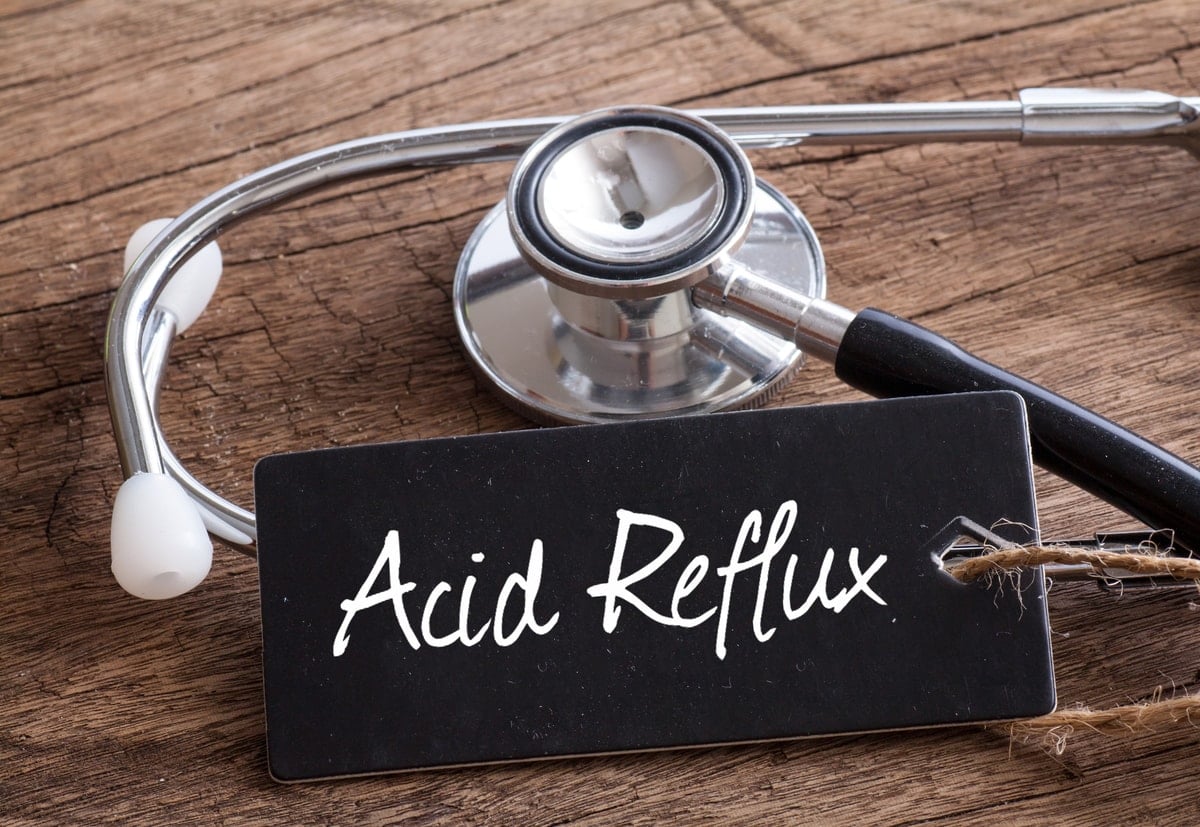
Acid reflux occurs when some of the stomach's acid content goes back up into the esophagus, causing that burning sensation known as 'heartburn.' So yes, despite its name, heartburn has nothing to do with the heart.
Another thing to consider is the gastroesophageal sphincter. It is a muscular ring that generally serves as a valve, allowing food into the stomach and preventing it from going back into the esophagus. Acid reflux occurs when this valve malfunctions and stomach contents regurgitate into the esophagus.
Caffeine, alcohol, chocolates, carbonated drinks, and other acidic juices have been linked to acid reflux. In addition, a high-salt diet, low-fiber diet, eating large meals, consuming fatty foods, and lying down immediately after a meal can also trigger acid reflux symptoms.
What to Drink for Acid Reflux Relief
Herbal Tea
Although most of us turn to coffee in the morning, a caffeinated beverage triggers acid reflux due to its acid content. Once brewed, coffee’s pH level reaches 4.8 and may result in some abdominal discomfort and trigger your GERD. If you have chronic acid reflux, you can try making herbal teas as home remedies.
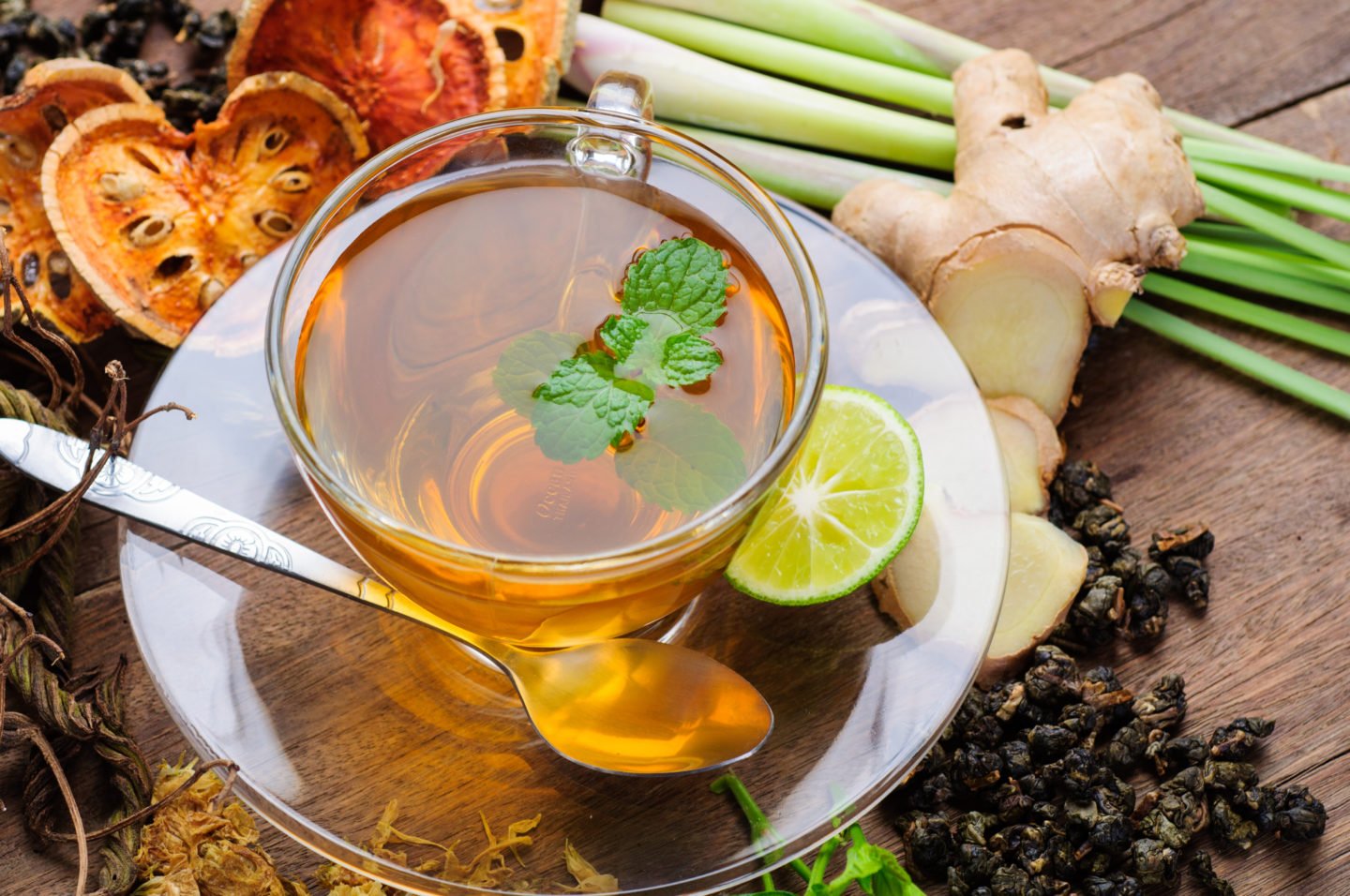
Ginger tea, chamomile tea, licorice tea, fennel tea, and turmeric tea are excellent home remedies for preventing acid reflux and lessening GERD symptoms.
Ginger Tea
Ginger tea has powerful digestive properties and may assist with anything from bloating to nausea and heartburn relief and lowering swelling in the digestive tract. That is due to its anti-inflammatory effects and the addition of gingerol and shogaol to the composition.
Chamomile Tea
Chamomile tea promotes emotional balance, ulcer relief, muscular relaxation, and good sleep. In addition, since stress and anxiety worsen acid reflux, the alkaline characteristics of the tea, as well as its capacity to calm the body, can aid with acid reflux.
Licorice Tea
Licorice root relieves pain and inflammation, lowers the incidence of ulcers, and increases mucus in the stomach, which may cushion and protect the stomach lining from acid. Since licorice tea also contains sedative qualities, this root tea becomes an incredible hidden weapon in the fight against acid.
Fennel Tea
This fiber-rich tea is good for the digestive system as it helps with excess gas, which helps relieve acid reflux symptoms. It also helps nourish your digestive system, making you less prone to have acid reflux flare-ups. Fennel also contains a lot of anti-inflammatory effects that can help with stomach discomfort and edema.
Turmeric Tea
Turmeric also aids in the treatment of acid reflux. Because oxidative stress has been linked to chronic acid reflux, turmeric's antioxidant properties may help to mitigate the symptoms. In addition, turmeric keeps the body fighting fit and protects the stomach from damage and ulcers.
Milk
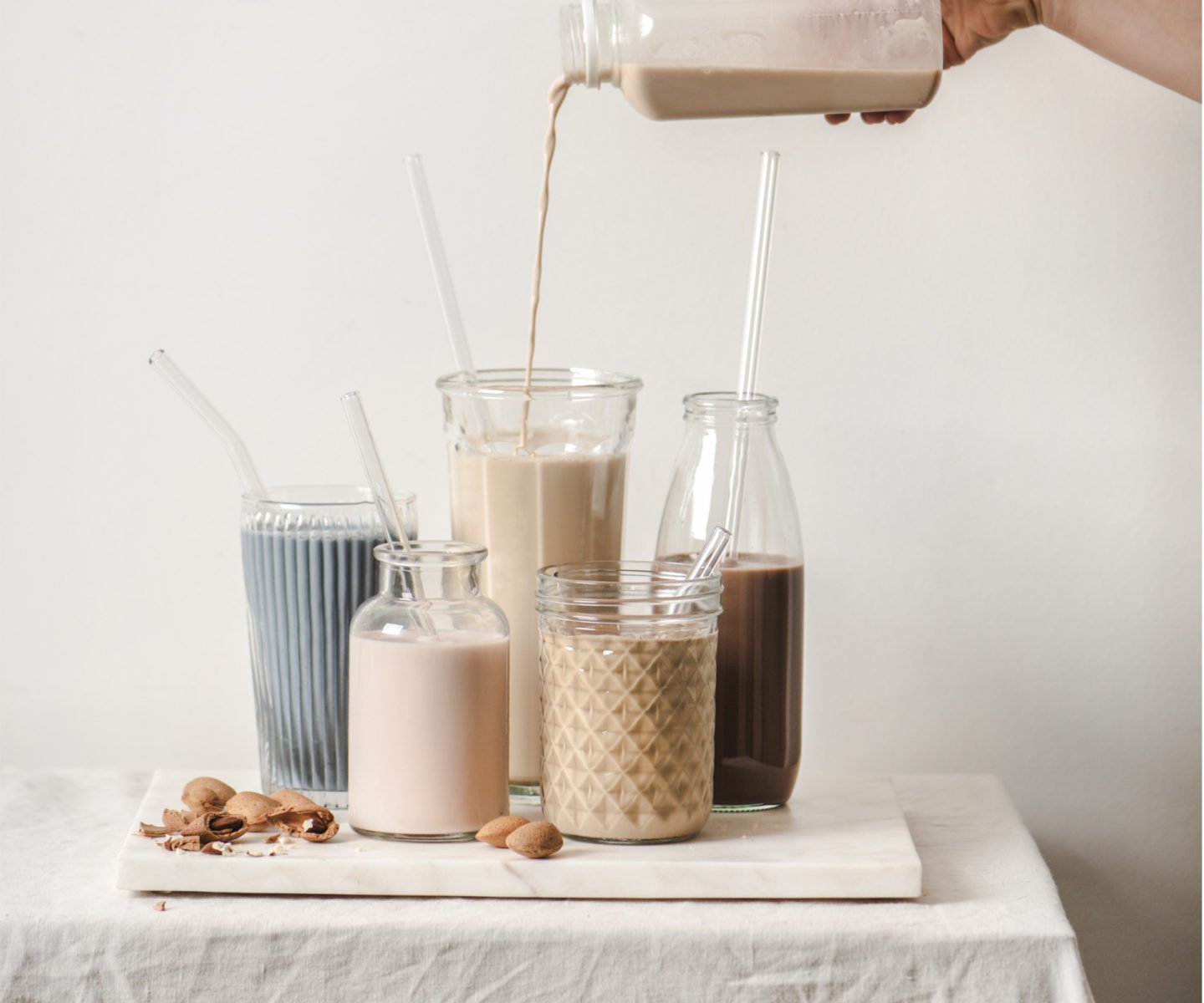
Milk contains protein and calcium that help relieve acid reflux. However, most milk also has a high amount of fat that triggers or worsens the symptoms of GERD. Low-fat milk, goat’s milk, almond milk, and soy milk contain healthy fats and effectively relieve heartburn.
Low-Fat Milk and Goat’s Milk
If you’re a fan of milk and consume it daily, we suggest switching to low-fat milk to avoid acid reflux flare-ups. Another option is to drink goat’s milk, which provides more digestibility and contains anti-allergic and anti-inflammatory properties that aid proper digestion.
Almond Milk and Soy Milk
For a vegan alternative, almond milk’s alkaline nature helps balance your gastric acid production and is excellent for preventing acid reflux and other GERD symptoms. Soy milk contains less fat than most milk, making it a safer alternative. However, when purchasing alternative milk, check for additives, as they can sometimes trigger acid reflux.
Breast Milk and Acid Reflux
Babies also experience acid reflux, especially when fed too often and too much. If you’re breastfeeding your baby, thickening the breast milk slows their ingestion and prevents stomach content from going back up into your baby's throat.
Yogurt
Some yogurt contains high fat, making acid reflux symptoms worse. If you’re a fan of having yogurt for dessert, try a low-fat alternative. Your body digests low-fat yogurt easier, preventing heartburn. The key to choosing a suitable yogurt for acid reflux prevention is to choose one that is not too sour. Adding honey to yogurt also helps.
Non-Acidic Juices
Non-acidic foods and juices help relieve constipation. Although all fruit juices are considered acidic based on their pH levels, they provide alkalizing effects in the body once consumed.
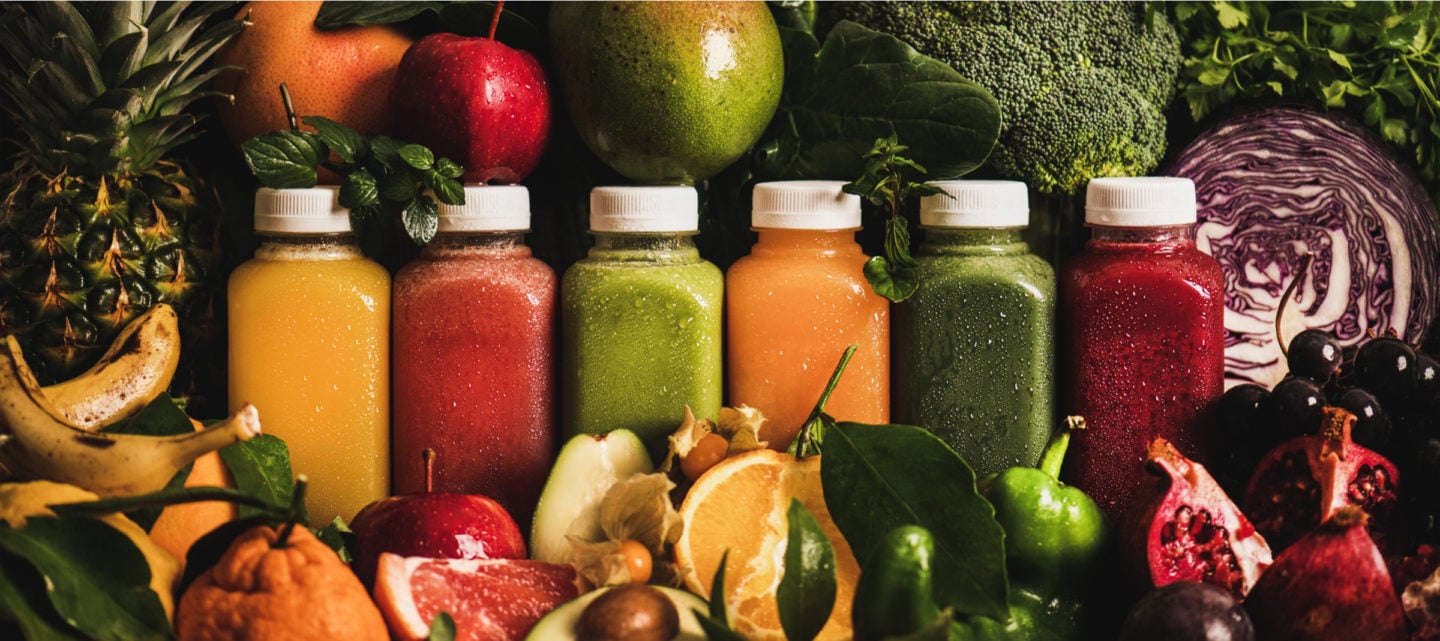
Aside from providing nutrients for a healthy digestive tract, these fruits also provide hydration that calms the stomach's acid production. Moreover, these juices contain fiber that prevents indigestion.
Carrot Juice
Natural alkaline components in carrot juice aid in counteracting excess gastric acid production, which causes heartburn symptoms. Although carrot juice may not give complete or immediate relief from chronic acid reflux symptoms, drinking it is a safe alternative for GERD patients.
Melon Juice
Nothing beats a refreshing drink on a hot summer day. Aside from their refreshing taste, watermelon, cantaloupe, and honeydew juice are low-acid fruit juices that help ease acidity and combat gastroesophageal reflux disease. Moreover, these fruits are rich in antioxidants, vitamin C, vitamin A, amino acids, and high water content, which aid digestion and keep the body hydrated.
Aloe Vera Juice
Aloe vera contains high levels of anti-inflammatory compounds that prevent irritations, making it one of the best go-to home remedies for sunburns. Aside from that, aloe vera juice has vitamins, minerals, and amino acids that aid digestion and help eliminate body waste. A study also supported that the intake of aloe vera lessened the frequency of GERD symptoms, making it a safer alternative than over-the-counter GERD treatments.
Cabbage Juice
Several studies have been published that demonstrate cabbage juice's anti-inflammatory nutrients and how it may help heal and avoid harmful conditions like stomach ulcers and enhance general immunity. Cabbage juice also has alkalizing properties, which help lessen GERD symptoms.
Cucumber Juice
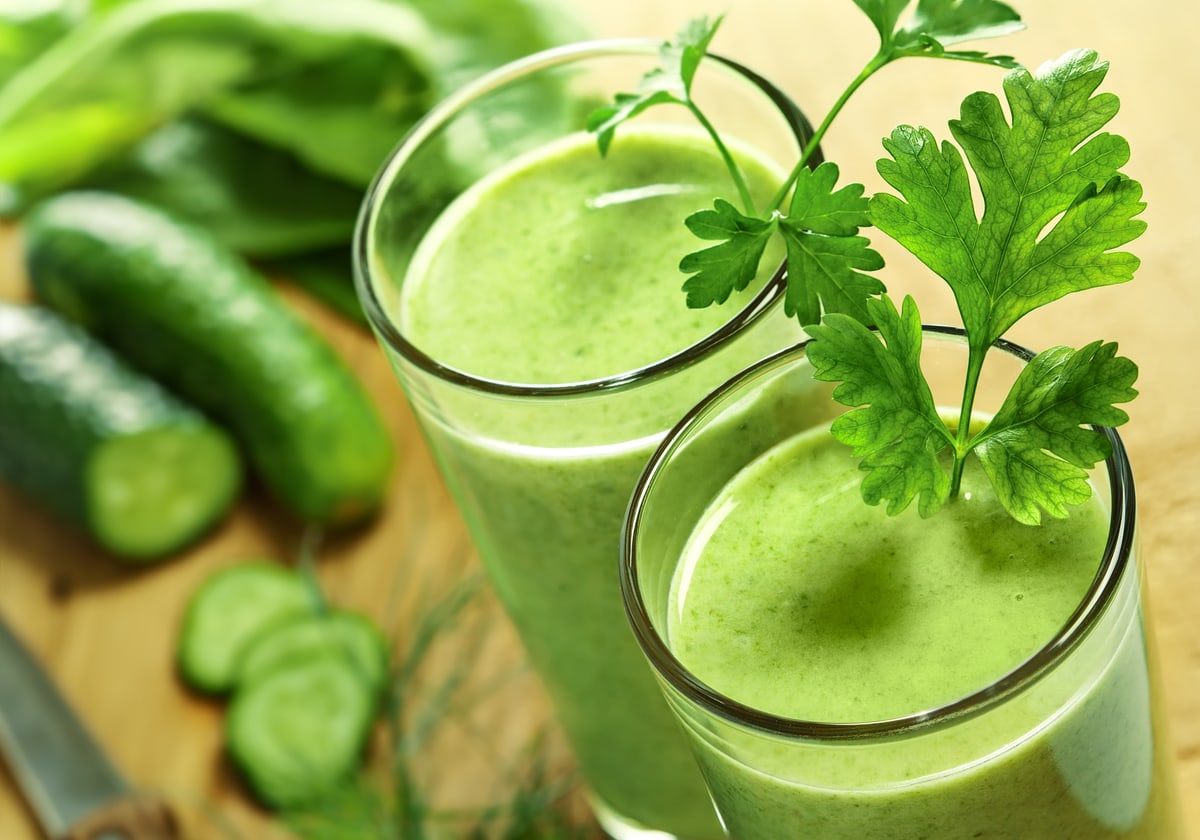
Aside from being an alkaline drink that neutralizes the acidity in the stomach, cucumber juice also contains high amounts of water that dilutes the stomach’s acid, refraining it from pushing food up to the esophagus. Cucumber juice also contains vitamins and minerals as well as a bunch of anti-inflammatory compounds that prevent irritations. Moreover, cucumber juice is rich in vitamin K and is excellent for people who suffer from bleeding disorders.
Beet Juice
Beet juice is rich in fiber which makes one feel full easier. Eating fiber-rich food will prevent overeating, a common cause of acid reflux. Moreover, although beet juice is acidic, it has an alkalizing effect once inside the gut, making it great for neutralizing your stomach’s acidity. Beet juice also contains high anti-inflammatory compounds that prevent irritations and cleanse your body.
Pear Juice
Pear juice is among the safest drinks for gastroesophageal reflux disease. Pears are one of the low-acid fruits that contain high levels of fiber and a bunch of vitamins and minerals that benefit the gut.
So when taking pear juice, you are not only neutralizing the stomach’s acidity but also aiding digestion and preventing overeating. Not to mention, pear juice is exceptionally delicious and great even for babies and kids.
Apple Juice
Although apples are generally acidic, the juice from red apples has fewer acid compounds. And people with gastroesophageal reflux disease tolerate it better than other types of apple juice.
On the other hand, green apples are more acidic and might trigger symptoms of GERD. In addition, when buying apple juice, be sure to check for exposure to pesticides and additives. These chemicals may cause inflammation and irritation in your stomach.
Water
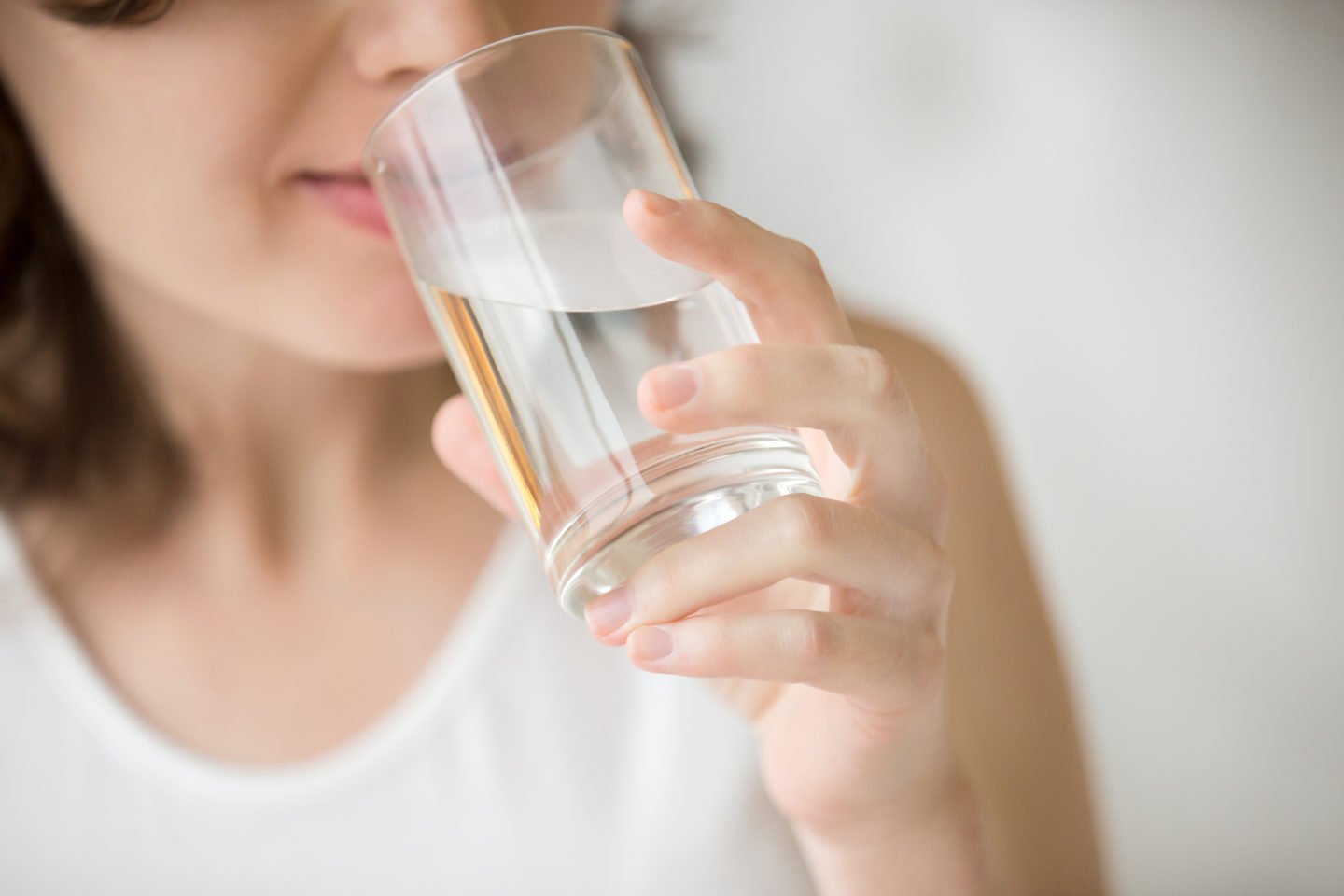
When experiencing heartburn or any symptoms of gastroesophageal reflux disease, the stomach’s acidity tends to be higher than it should be. Drinking water alone dilutes the stomach’s content, including acidity, resulting in lesser effects of heartburn. You also flush your esophagus by drinking water, clearing the acid that causes irritation and a burning sensation.
Warm Water
Drinking warm water also helps with digestion and the easy passage of food. When your food quickly gets digested, you are less likely to develop bloating, triggering acid reflux. However, note that drinking water in massive amounts can fill your stomach, which adds pressure to the lower esophageal sphincter. The pressure can force the sphincter valve to open and release some of the acidic fluid back up, causing more heartburn.
Alkaline Water
Many patients with reflux illness claim alkaline water to be therapeutic, and it has been linked to reducing heartburn symptoms. Since alkaline water’s pH is higher, it lowers the digestive tract's pH and irreversibly denatures any pepsin present.
The pH of ordinary tap water is around seven, which is neutral - not alkaline or acidic. Alkaline water has a pH of more than seven, usually around nine. While alkaline water needs more scientific validation, most people testify about its effectiveness against heartburn symptoms and other GERD symptoms.
Coconut Water
Coconut water is an excellent source of electrolytes. Electrolytes play a massive role in maintaining your body’s pH levels. Sodium and potassium are the main electrolytes in the body, and luckily, a glass of coconut water provides 10% of the daily sodium needs and 17% of the daily potassium needs.
Aside from that, coconut water is alkaline, which neutralizes your stomach acidity, preventing heartburn and other symptoms of acid reflux. When opting for coconut water, fresh juice is your best choice. However, you can check bottled ones and see if there are ingredients that make the juice acidic rather than alkaline.
Smoothies
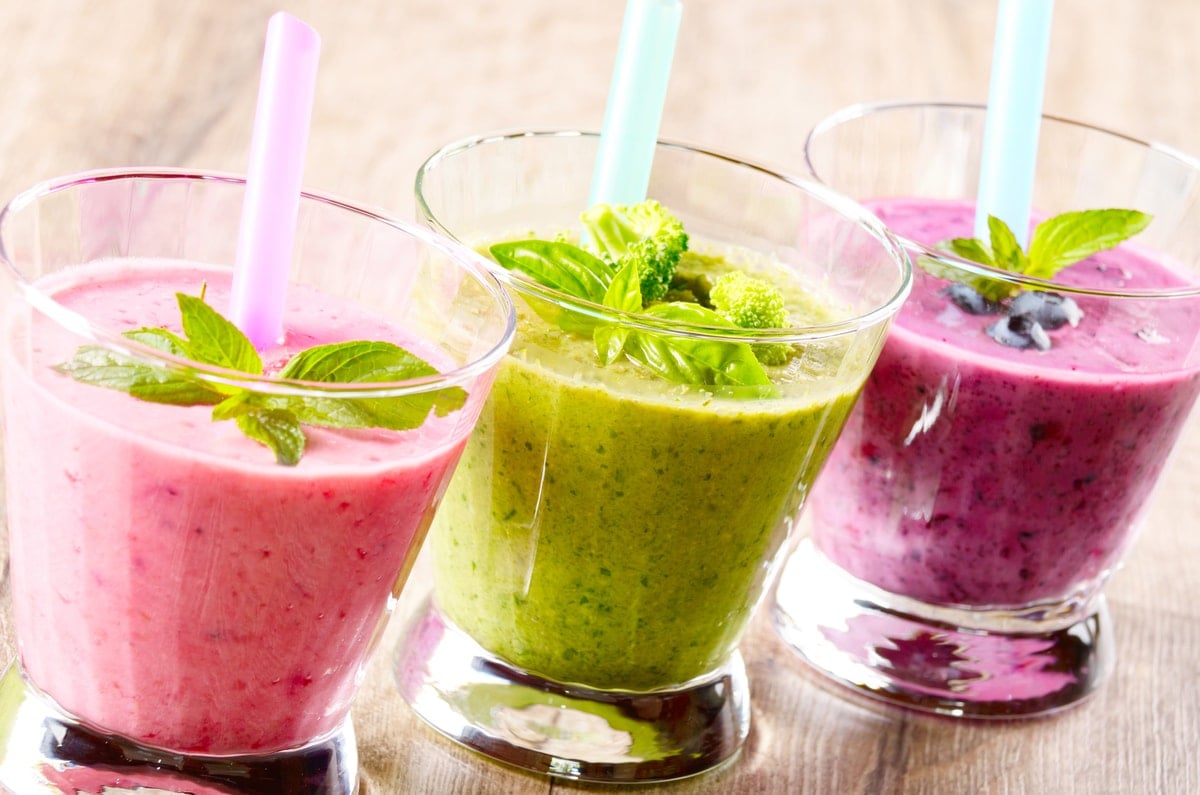
Smoothies are a great way to solve your acid reflux. If you’re not a fan of drinking plain juices, you can try making smoothies. You can mix the fruits mentioned above, like apples, pears, and melons, and combine them with cabbage, cucumber, aloe vera, and beet. You can also add coconut water and yogurt to the mixture.
Baking Soda Water
Baking soda neutralizes acidity due to its basic compounds, making it an efficient drink for acid reflux. Mixing ½ teaspoon with 4 ounces of water is an excellent home remedy that gives quick results.
What to Avoid to Prevent Acid Reflux?
Caffeine
Coffee is acidic by nature. The acidic, sour kick that coffee lovers appreciate comes from the organic acid found in coffee beans. However, other people's digestive systems cannot manage the natural acid, and they are left to deal with the burning, belching, and acid that rises from the stomach.
Energy drinks also trigger heartburn symptoms. That is because most commercially available energy drinks contain high levels of caffeine and acids.
Alcohol
Alcohol consumption induces heartburn symptoms in four ways: it keeps acidic food in the stomach longer, stimulates stomach acid production, impairs the throat’s ability to keep food down, and triggers acid from the stomach to rise into the esophagus.
In many circumstances, cutting down on alcoholic beverages helps manage GERD symptoms. That's why doctors often advise people with chronic acid reflux to drink moderate amounts of alcohol if completely cutting them out of their lives may be impossible.
Wine
Wines are fermented and produce acids during the process, and drinking them irritates the stomach. In addition, both red and white wines aggravate gastroesophageal reflux disease symptoms. Thus, you should avoid them at all costs.
Beer
Beer does not only contain a lot of acids but is also carbonated. Both acidic drinks and carbonated drinks trigger acid reflux; hence, people with gastroesophageal reflux must stay away from beer.
Citrus Juices
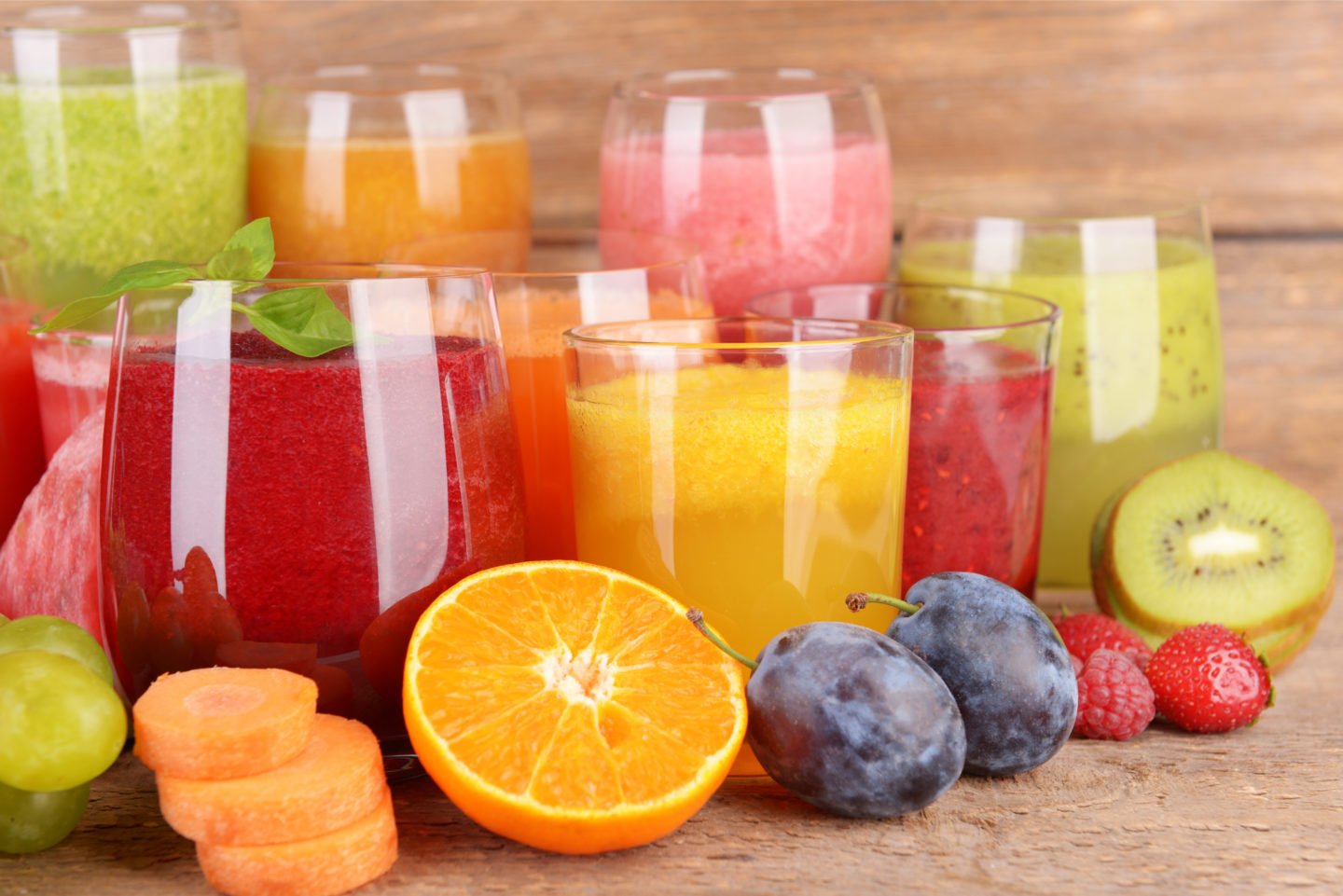
As the name implies, citrus fruit contains high levels of citric acid. Once ingested, citric acid from acidic foods stimulates acid production in the stomach, making them bad for people with acid reflux.
Lemon juice and lime juice have the highest citric acid content. Therefore, drinking them in a concentrated form triggers acid production and irritates the mucous membrane in the esophagus.
Lemon Water
While lemon juice is one of the most acidic citrus juices, it can have an alkalizing effect when consumed in tiny amounts with water. That can aid in the neutralization of gastric acid. You can mix one tablespoon of fresh lemon juice with a glass of water if you want to try this home treatment.
Carbonated Beverages and Spicy Food
Carbonated drinks are acidic. They not only cause a decline in the stomach’s pH, but they also pose damage to the teeth and other parts of the mouth when regularly exposed. Spicy food also triggers acid reflux as they irritate the esophagus.
Related Questions
Acid reflux includes several symptoms, but the most common symptom is heartburn. You may also experience regurgitation, where you taste or feel sour and bitter acid in your throat. Bloating, hiccups, burping, and nausea are also significant indicators. If you have had them more than twice a week, you should consider seeing a doctor for a diagnosis.
Non-acidic and low-fat beverages provide acid reflux and heartburn relief. The best herbal remedies include ginger tea, chamomile tea, licorice tea, fennel tea, and turmeric tea.
If tea isn't to your liking, try low-fat milk, goat’s milk, almond milk, and soy milk. These low-fat dairies don’t trigger acid reflux. Similarly, alkalizing fruit juices like melon juice, pear juice, and apple juice also help.
Acid reflux patients may benefit from more moderate and low-impact exercise. For example, walking, running at a low intensity, yoga, stationary biking, and swimming are healthy options. Specifically, healthy living can assist you in losing weight, which will improve symptoms related to GERD and acid reflux.
Heartburn is a symptom of acid reflux and gastroesophageal reflux disease. Acid reflux happens when the lower esophageal sphincter muscle relaxes at the incorrect moment, bringing stomach acid back up into the esophagus. If acid reflux occurs more than twice a week, that may indicate gastroesophageal reflux disease.

DianaW
Since lemon does not stimulate acid in the stomach, surely lemon juice can't be acid-forming. It's a common misconception that acidity in fruit = acid-forming in the stomach but, in the case of lemons at least, that's quite wrong. I've also seen the same said of limes.
The best remedy I know to calm down excess acidity is flat tepid lemonade, the old-fashioned kind that's normally sold carbonated. Just let out the gas and keep the bottle out of the fridge.
Peppermint also seems to be well tolerated by an outraged stomach.
Connor
Hi Diana, yes that is correct and is already addressed in the article "While lemon juice is one of the most acidic citrus juices, it can have an alkalizing effect when consumed in tiny amounts with water. That can aid in the neutralization of gastric acid. You can mix one tablespoon of fresh lemon juice with a glass of water if you want to try this home treatment."